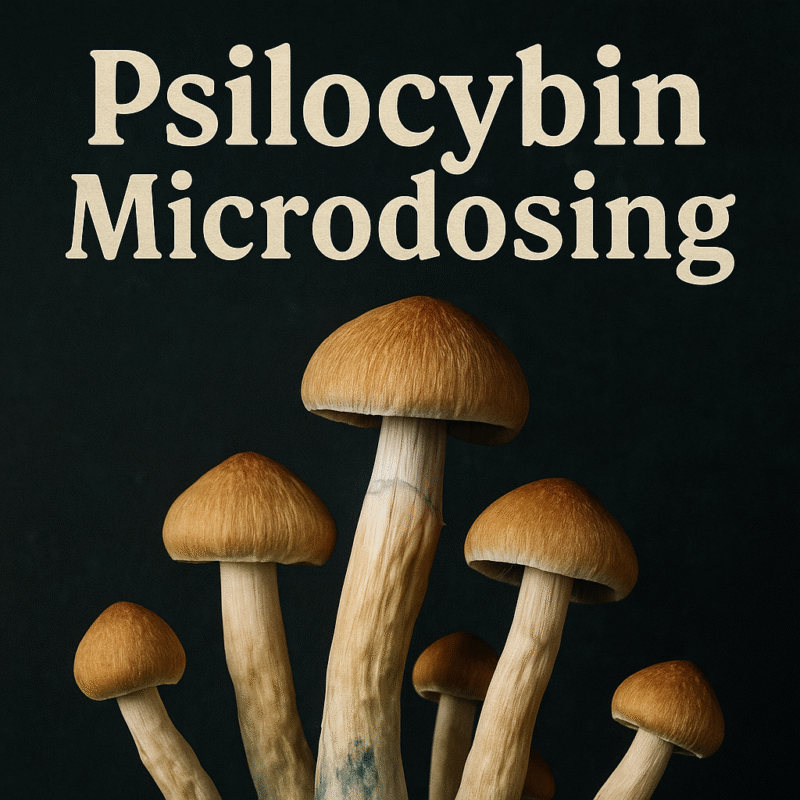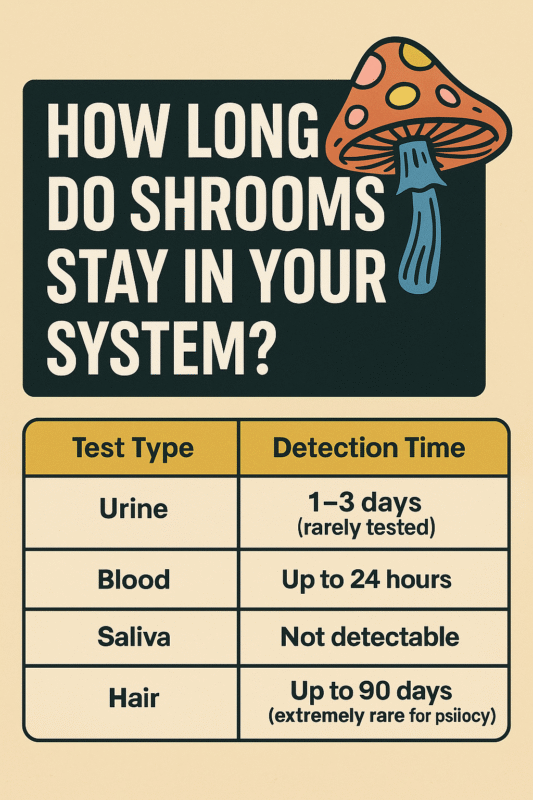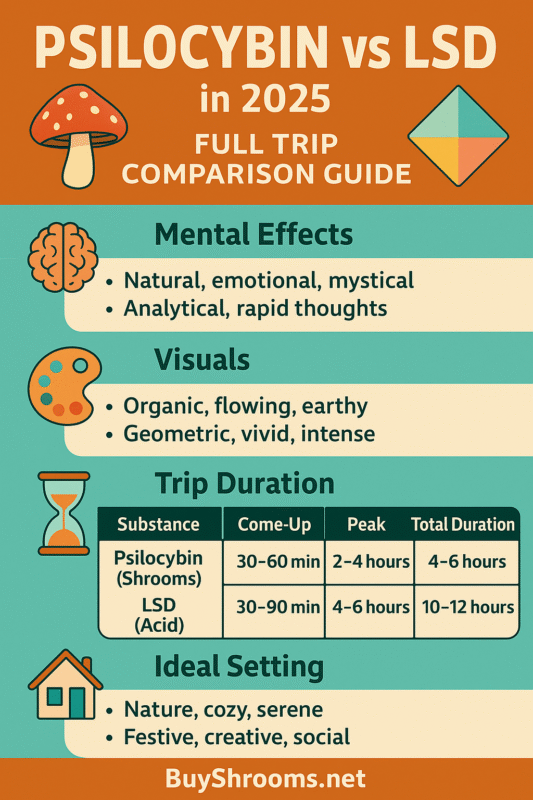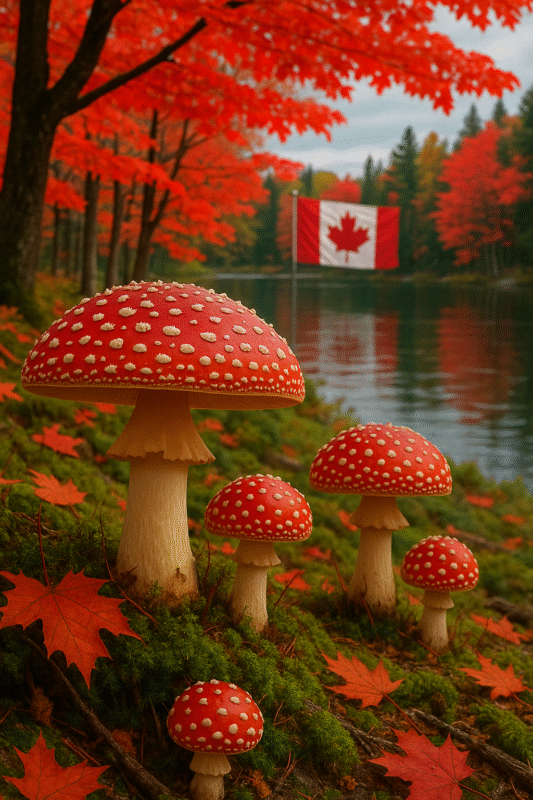
Psilocybin Mushrooms in the Media: How Psychedelic Therapy is Changing the Conversation
The media landscape surrounding psilocybin mushrooms is evolving at a rapid pace. What was once considered a taboo subject in mainstream media is now being embraced as a legitimate treatment option for a variety of mental health conditions. From high-profile celebrity endorsements to groundbreaking scientific studies, psilocybin—the active compound in magic mushrooms—is gaining recognition as a promising tool in the growing field of psychedelic therapy. In this blog, we’ll explore how psilocybin mushrooms in the media are changing the way we think about mental health, the role of media in these shifts, and how the public's perception of psychedelic substances is being reshaped.
The Surge of Psilocybin Mushrooms in Mainstream Media
Psilocybin mushrooms have been a subject of interest for decades within psychedelic research and counterculture communities. However, in recent years, the topic of psilocybin mushrooms has exploded into mainstream media, sparking a renewed interest in their potential for mental health therapy. This shift can be attributed to a number of factors: the rise of psychedelic documentaries, celebrity endorsements, and, most importantly, scientific breakthroughs in the understanding of how psilocybin can impact mental health.
Media outlets like The New York Times, Vice, and NBC News have all featured articles and stories about psilocybin mushrooms, often focusing on their use in mental health treatment. As research continues to demonstrate the therapeutic potential of psilocybin, these media platforms are helping spread awareness to a broader audience, moving away from the once-popular stigma surrounding psychedelics as dangerous or illegal substances.
With documentaries like “Fantastic Fungi” and episodes from "The Mind, Explained" series, psilocybin has been able to break into the public consciousness. These films provide accessible, thought-provoking content that educates viewers on the healing properties of psilocybin and its potential to treat disorders like depression, anxiety, and even addiction.
Psilocybin Research: Scientific Breakthroughs Fuel Media Attention
In the past decade, scientific research on psilocybin mushrooms has seen an explosion in funding, support, and public interest. Major institutions such as Johns Hopkins University, Imperial College London, and NYU have led numerous clinical trials investigating the effects of psilocybin on mental health conditions. The results from these studies are compelling and have paved the way for psilocybin-assisted therapy to become a legitimate form of treatment for mental health disorders.
These studies often make headlines, especially when the findings show the long-term benefits of psilocybin therapy. For instance, a landmark study from Johns Hopkins in 2020 revealed that psilocybin therapy can significantly reduce symptoms of depression and anxiety in cancer patients. Such groundbreaking research has forced both the public and the media to reconsider the place of psilocybin mushrooms in society, shifting from a counterculture phenomenon to a scientifically validated tool in psychedelic therapy.
By covering these clinical trials, the media is bringing psilocybin research into the homes of millions of people. As more individuals see the success stories, both in the news and in documentaries, public demand for access to psilocybin mushrooms grows.
The Role of Psilocybin in Mental Health Treatment
The mental health crisis has been a growing concern globally, with rising rates of depression, anxiety, PTSD, and addiction. Traditional treatments, such as medication and therapy, have helped many, but they do not work for everyone. This has led researchers and mental health professionals to seek alternative treatments. Enter psilocybin therapy.
Psilocybin, when administered in a controlled environment under the guidance of a trained therapist, can help patients confront deep-seated emotional issues, reframe their thinking, and overcome mental health challenges. For example, psilocybin's effects on the brain's default mode network can help individuals break free from rigid thought patterns often associated with depression and anxiety.
The role of psilocybin mushrooms in mental health treatment has been a major topic of media coverage. Leading news outlets have reported on the success of psilocybin trials, offering a spotlight on the profound psychological experiences that patients undergo. By sharing these stories of healing, the media plays a crucial role in informing the public about the possibilities of psychedelic therapy, thereby changing attitudes toward these substances.
Celebrity Influence and the Normalization of Psilocybin Mushrooms
In addition to scientific studies, celebrity endorsements have played a pivotal role in bringing psilocybin mushrooms into the mainstream. High-profile figures like Joe Rogan, Tim Ferriss, and Miley Cyrus have openly discussed their personal experiences with magic mushrooms on podcasts, interviews, and social media. These public figures have helped to normalize the conversation around psychedelics, including psilocybin.
When influential personalities share their positive experiences with psilocybin mushrooms, it helps destigmatize their use and further promotes public acceptance. This increased visibility and endorsement from those in the public eye have also helped frame psilocybin as a potential wellness tool, shifting away from its reputation as a recreational drug.
As more celebrities talk about the mental health benefits they’ve experienced through psilocybin, the substance is increasingly viewed as a legitimate, even beneficial, part of modern wellness culture. This shift in perception is critical in driving forward psychedelic therapy in the mainstream.
The Legal Landscape: Psilocybin Mushrooms and Media Advocacy
As media coverage of psilocybin mushrooms increases, so does the momentum for legal reform. In 2020, Oregon became the first state in the U.S. to legalize psilocybin therapy, and cities like Denver, Oakland, and Santa Cruz have decriminalized psilocybin possession. This legal progress has largely been driven by public support, which, in turn, has been fueled by widespread media coverage of the positive effects of psilocybin therapy.
The growing media presence of psilocybin mushrooms in therapeutic contexts has helped change the legal landscape, making it more likely that other states and countries will follow suit. As the media continues to shine a spotlight on the successes of psilocybin trials and the therapeutic potential of psychedelic mushrooms, advocates for psychedelic reform are gaining more traction in their efforts to broaden access to psilocybin therapy.
Psilocybin Documentaries: Educating the Masses
Documentaries about psilocybin mushrooms are another key factor in raising public awareness. Films like “Fantastic Fungi” and “The Mind, Explained: Psychedelics” offer an in-depth look at how psychedelics like psilocybin work in the brain, their potential therapeutic effects, and personal stories of healing. These documentaries help to humanize the psilocybin experience and make it more relatable to the average viewer.
By using storytelling and scientific insight, these films capture the public's imagination and spark curiosity about the benefits of psilocybin mushrooms. As the popularity of these documentaries grows, so does the acceptance of psilocybin in both mental health treatment and spiritual exploration.
The Future of Psilocybin in the Media
Looking ahead, the media’s portrayal of psilocybin mushrooms will continue to evolve. As more research on psilocybin therapy is published and as real-world applications become more widespread, the conversation around psilocybin will likely continue to grow. News outlets will continue to report on new breakthroughs, and documentaries will provide an accessible way for the public to learn more about the benefits of psilocybin therapy.
As society becomes more accepting of psychedelic substances, psilocybin mushrooms are poised to become an integral part of mental health treatment worldwide. The media will undoubtedly continue to play a pivotal role in shaping public perception, driving change in both legal policies and public attitudes toward psilocybin mushrooms.
Conclusion
The media's coverage of psilocybin mushrooms has led to a major shift in public perception. From the scientific breakthroughs that demonstrate the therapeutic potential of psilocybin to celebrity endorsements and insightful documentaries, the conversation around psilocybin is more visible and accepted than ever before. As psychedelic therapy continues to gain traction, psilocybin mushrooms will play an increasingly important role in shaping the future of mental health treatment.
The media's role in promoting psilocybin mushrooms as a legitimate, scientifically supported treatment will only grow, and as public awareness increases, so too will access to this transformative therapy.
If you’re interested in learning more about psilocybin mushrooms, check out our selection at BuyShrooms.net, where we provide high-quality, lab-tested magic mushrooms for both personal and therapeutic use.












